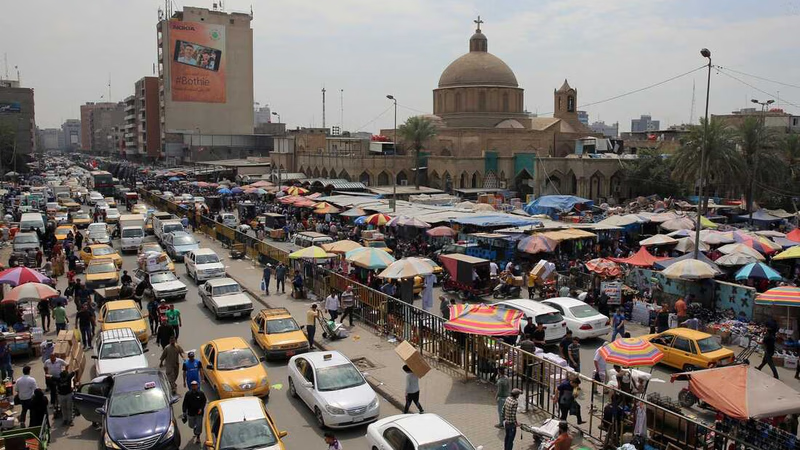
Iraq is located in Western Asia and is bordered by Turkey to the north, Syria to the northwest, Jordan and Saudi Arabia to the west, Kuwait and Saudi Arabia to the south, and Iran to the east. The capital of Iraq is the city of Baghdad and the currency of this country is the Iraqi dinar, which is known by the code IQD. The official language of this country is Arabic, but Kurdish and other languages are also used in some regions of the country. The majority of Iraqis follow Islamic beliefs, with a Shiite majority and a Sunni minority. This country is a big and potential market that is attractive for trade and investment. The main sectors of Iraq`s economy include oil and gas industries, petrochemical industries, construction, agriculture, services and tourism.
This country has rich oil and gas resources, and these industries serve as the main source of the country`s income and exports. The products that Iraqi businessmen import and export to other countries include food products, industrial products, machinery, auto parts, electronic devices, and construction products. This country exports oil products, gas, petrochemicals, car parts, grains, dry fruits, rice, agricultural products and food to other countries. Iraq`s biggest trading partners are Iran, Turkey, China, Germany and the United Arab Emirates. As one of the close neighbors and a major trade partner, Iran is one of the biggest trade partners of Iraq. The biggest source of income for this country is oil and gas exports. Other incomes of Iraq are obtained from agricultural products, petrochemical industries and tourist services.
-

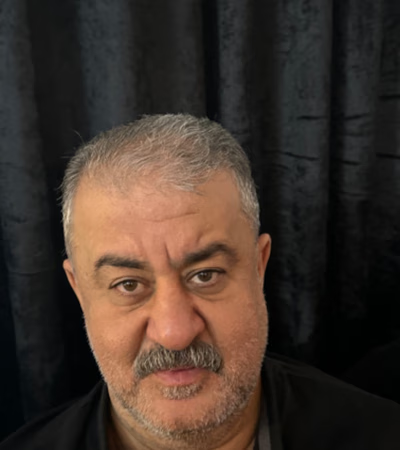 Iraq
Sulfuric Acid H2SO4
Iraq
Sulfuric Acid H2SO4
Concentrated H2SO4\nConcentration 97% and aboveDetails
-
 Safa Abdulredha Abdulmahdi Al-Shams 1 months ago
Safa Abdulredha Abdulmahdi Al-Shams 1 months ago Iraq
Gold and Diamonds
Iraq
Gold and Diamonds
30 tons of 24-carat gold are available in the Central Bank's treasuryDetails
-
 Ahjar Raye 1 months ago
Ahjar Raye 1 months ago Iraq
Meteorite
Iraq
Meteorite
MeteoriteDetails
-

 Iraq
Natural Jewelry and Gemstones
Iraq
Natural Jewelry and Gemstones
Selling natural gemstones at Markaz Mas Al-Janoub Lil-Siyaghat Wal-Mujawharat Wal-Ahjar Al-Karimah in Iraq through direct shopping or delivery service...Details
-
 الطريق المُشرِق للتجارة المشتقات النفطية 3 weeks ago
الطريق المُشرِق للتجارة المشتقات النفطية 3 weeks ago Iraq
Fuel oil & bitumen & diesel
Iraq
Fuel oil & bitumen & diesel
50/60 bitumenDetails
-
 Hussein 3 weeks ago
Hussein 3 weeks ago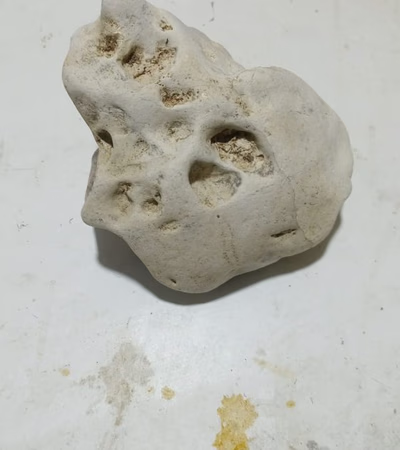 Iraq
Meteor
Iraq
Meteor
MeteorDetails
-
 Musab Al-Rawi 3 weeks ago
Musab Al-Rawi 3 weeks ago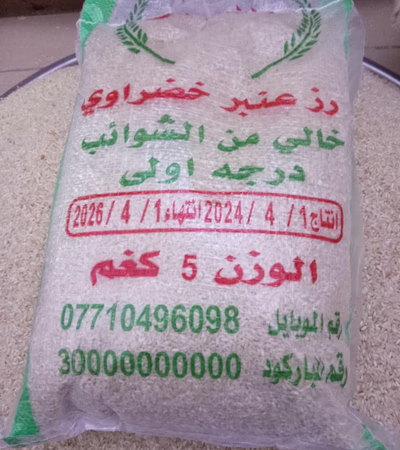 Iraq
Original Iraqi Amber Rice Ready for Export from Iraq
Iraq
Original Iraqi Amber Rice Ready for Export from Iraq
Iraqi Amber Rice is one of the best types of rice in the worldDetails
-
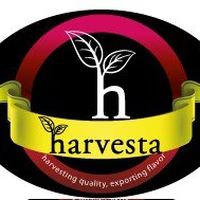 Harvesta Ltd 1 months ago
Harvesta Ltd 1 months ago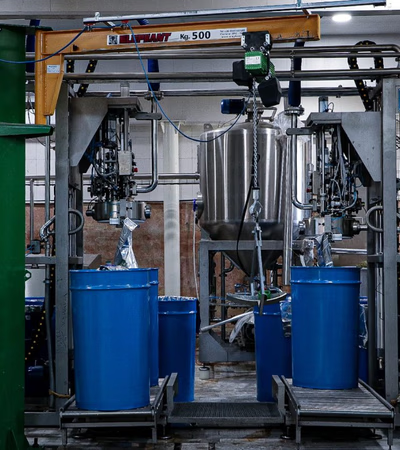 Iraq
Harvestaltd
Iraq
Harvestaltd
Peace be upon you, our products include fruits, vegetables, fish, shrimp, caviar, canned foods, etc.Details
-
 Rayan 3 months ago
Rayan 3 months ago Iraq
Diamond 130 Carats
Iraq
Diamond 130 Carats
Diamond 130 Carats African / Inside the UAEDetails
-
 Abdullah 1 months ago
Abdullah 1 months ago Iraq
Rare Stones like Pearls
Iraq
Rare Stones like Pearls
After greetings and appreciation \nYour brother from Iraq ... has very precious and rare stones \nThe pearl stone is manually extracted from the heart...Details
-
 Baran 2 weeks ago
Baran 2 weeks ago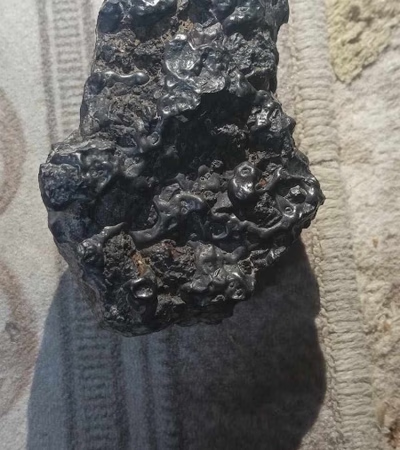 Iraq
Meteor
Iraq
Meteor
$$Details
In 2025, Iraq"s economic landscape presents a complex interplay of growth and volatility, offering unique trade opportunities. Iraq"s GDP has shown fluctuations over the recent years, peaking at approximately $286. 6 billion in 2022 before dipping to $250. 8 billion in 2023, contrasting with a steady global GDP growth trend that reached $883. 7 billion by 2023. This indicates potential market corrections but also suggests a significant gap when compared against global growth trajectories. The total reserves, including gold, in Iraq have shown a promising increase from $64. 2 billion in 2021 to $112.
2 billion in 2023, moving closer to the global average of $128. 4 billion in the same year. This growth in reserves provides a cushion against economic uncertainties and suggests a degree of financial stability that could bolster investor confidence. Iraq"s merchandise import value indices reveal an upward trend, increasing from an index of 84. 6 in 2021 to 119. 3 in 2023, significantly outperforming the global average index of 101. 1 in 2023. This indicates a robust demand for imports, driven by domestic consumption and potentially favorable trade policies.
Conversely, Iraq"s merchandise export value indices dropped from 161. 5 in 2022 to 84. 0 in 2023. This sharp decline suggests a need to reassess export strategies and explore diversification in export markets. An intriguing pattern is observed in the merchandise import volume indices, which rose from 76. 7 in 2021 to 126. 1 in 2023, suggesting an increased physical inflow of goods. This surge surpasses the global average increase to 104.
5, highlighting Iraq"s growing appetite for international goods, which presents an opening for exporters targeting the region. For businesses seeking to navigate these dynamic conditions, adopting strategic alliances and leveraging platforms like Aritral. com could be instrumental. Aritral, an AI-driven B2B platform, offers tools for global sales assistance and AI-powered marketing, helping businesses establish a foothold in Iraq"s evolving market. By creating a business profile on Aritral. com, companies can enhance their visibility and tap into emerging trade routes in the Middle East.











